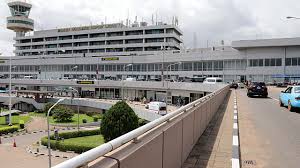
After much delay, the Nigerian Airspace Management Agency (NAMA), has begun calibration of Category III Instrument Landing System at the Murtala Muhammed International Airport (MMIA), in Lagos.
The Guardian learnt that the process begun with the arrival of the newly-acquired, King Air 350i calibration airplane and pre-calibration brief at the weekend.
Recall that the flight services across both the international and local operations recently assumed a worrisome dimension over poor visibility and inadequate technology to support safe operations at some of the airports nationwide.
The development, which amounts to revenue loss for the industry and inconvenience to air travellers, runs contrary to the Federal Government’s recent investment in Category III Instrument Landing System (ILSs) for Lagos and Abuja airports in excess of $6 million, and purchase of calibration aircraft at N2.59 billion to okay the equipment.
Erstwhile non-availability of the calibration aircraft ensured that the new ILSs were not in use when it mattered most during the Harmattan haze.
But as at weekend, certified flight instructors and pilots from the United Kingdom (UK) had arrived Nigeria for the exercise, and would be around for three weeks to carry out this calibration exercise, while Nigerian crew, it was learnt, will undergo On-the-Job Training (OJT) during the exercise.
In addition, the experts maybe calibrating the navigational aids of airports nationwide, including the ongoing installation of Enugu new ILS/DME, which will be ready soon.
A source at the agency confirmed that the newly acquired Calibration Aircraft is ready for the exercise.
“To be sure that the exercise does not fail, we have also engaged Omni Blue as a backup in case of any failure being the first exercise to be conducted with the new calibration aircraft.
“Our Nigerian crew will be trained as well during the exercise as part of the exposure necessary for their certification,” he said.
Calibration is a process that ensures the safety of air navigation by conducting regular flight inspection, calibration of test equipment/avionics systems, surveillance of airspace systems, and certification of navigation aids/associated facility in accordance with the stipulated procedures as recommended in ICAO document 8071, annexes 10 (vol. I & II) and 14, as well as NCAA regulations.
Calibration of Instrument Landing System (ILS) are done twice a year-February and November, every six months because of the level of accuracy required, while Very High Frequency (VHF) Omni-Directional Range (VOR) is calibrated once in a year, and the radar system is once every three years. If there is repair work on any of the navigational equipment, or total replacement, it has to be calibrated.
